Disclosure Reporting
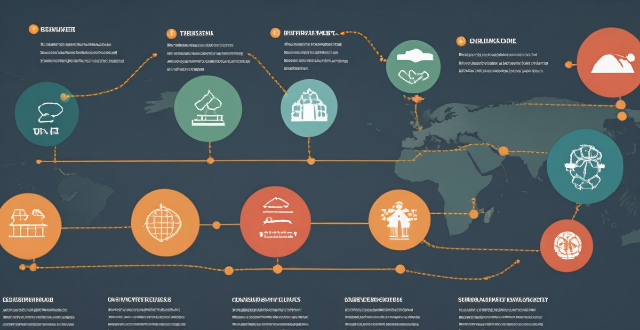
How does TCFD align with other global reporting initiatives like the Global Reporting Initiative (GRI) ?
The Task Force on Climate-related Financial Disclosures (TCFD) and the Global Reporting Initiative (GRI) are two global sustainability reporting frameworks that share several key points of alignment. Both provide guidelines for companies to report on their sustainability performance, with TCFD focusing specifically on climate-related financial disclosures and GRI covering a broader range of sustainability issues. They also emphasize the importance of materiality assessment, stakeholder engagement, risk management, and climate change disclosures in determining which aspects are most relevant to an organization's business model and strategy. By following both frameworks, companies can provide a more comprehensive picture of their sustainability performance and demonstrate their commitment to addressing climate change and other sustainability issues.
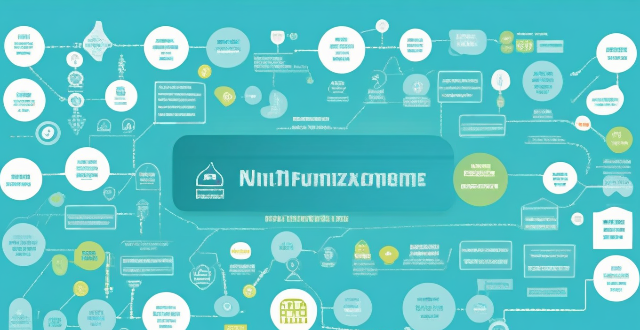
What are the most common ESG reporting frameworks used by companies ?
The Global Reporting Initiative (GRI) is a widely used sustainability reporting framework that provides a standardized approach for companies to report on their economic, environmental, and social performance. The GRI consists of several standards, including those related to disclosure principles, management approach, economic performance, environmental performance, social performance, governance, non-financial information disclosure, reporting principles, boundaries, guidelines, content, quality, frequency, language, format, timeframe, period, entities, scope, limitations, assurance, certification, training, tools, collaboration, innovation, stakeholder engagement, data quality, impact assessment, risk management, performance indicators, materiality analysis, and stakeholder engagement process. These standards help organizations prepare high-quality GRI reports that are accurate, reliable, and consistent across different organizations and sectors.
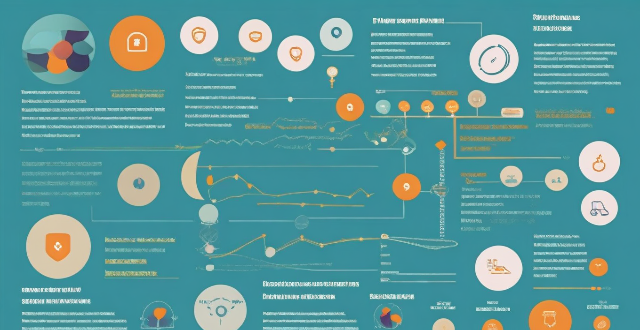
How does TCFD differ from other sustainability reporting frameworks ?
The Task Force on Climate-related Financial Disclosures (TCFD) is a unique sustainability reporting framework that focuses specifically on the financial risks and opportunities associated with climate change. It differs from other frameworks such as the Global Reporting Initiative (GRI) and the Sustainability Accounting Standards Board (SASB) in several key ways, including its exclusive focus on climate change, emphasis on financial implications, stakeholder engagement, specific recommendations for reporting, and integration with financial reporting. TCFD's approach helps companies effectively communicate their climate-related financial risks and opportunities, making it a valuable tool for navigating the complexities of climate change and its potential impact on their bottom line.

Why is climate-related financial disclosure important for investors ?
Climate-related financial disclosure is crucial for investors as it helps manage risks, identify investment opportunities, promote transparency and accountability, and ensure regulatory compliance. By disclosing their climate-related risks and opportunities, companies can take proactive steps to mitigate them and reduce their impact on the business. Additionally, climate-related financial disclosure helps identify potential investment opportunities, such as renewable energy projects and sustainable agriculture practices. Transparency and accountability are also promoted through climate-related financial disclosure, which can enhance a company's reputation and relationships with stakeholders. Finally, regulatory requirements are becoming increasingly important, and companies that fail to disclose their climate-related risks and opportunities may face fines or penalties.
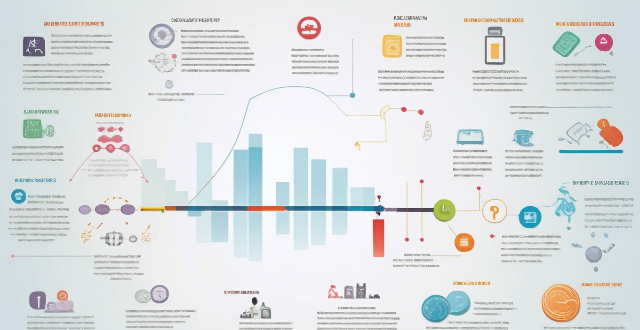
How does TCFD affect corporate reporting ?
The Task Force on Climate-related Financial Disclosures (TCFD) has significantly impacted corporate reporting by requiring enhanced disclosure of climate-related risks and opportunities. Companies must identify, assess, and manage these risks, including through scenario analysis and governance processes. They also need to disclose how climate change affects their business model and strategy, as well as the alignment of their portfolio with a low-carbon transition. Operational performance metrics such as emissions data and energy use must be reported, along with information on positive impacts and innovation related to climate action. Overall, the TCFD guidelines aim to promote transparency and encourage companies to integrate sustainability into their financial decision-making processes.

How does TCFD help in managing climate-related risks ?
The Task Force on Climate-related Financial Disclosures (TCFD) is a global initiative aimed at helping companies manage climate-related risks through consistent disclosure. The TCFD framework guides businesses in identifying and assessing these risks, integrating them into business planning, ensuring transparency through reporting and disclosure, conducting scenario analysis and stress testing, and recognizing potential opportunities arising from the transition to a low-carbon economy. By following this structured approach, companies can protect themselves from negative impacts of climate change and position themselves advantageously in emerging markets related to climate solutions.

How do variety show hosts deal with unexpected disclosures during live broadcasts ?
Handling unexpected disclosures during live broadcasts can be challenging for variety show hosts. Here are some tips on how to manage these situations effectively: 1. Stay calm and professional. 2. Acknowledge the disclosure. 3. Redirect the conversation. 4. Use humor (if appropriate). 5. Take a short break (if necessary). 6. Address the disclosure later (if applicable). 7. Seek support from your team. By following these strategies, you can maintain control of the show and keep your audience engaged and entertained.

What ethical considerations should be taken into account when reporting on athletes' personal lives ?
The text discusses ethical considerations in reporting athletes' personal lives, emphasizing respect for privacy, accuracy and fairness, consent and participation, handling sensitive topics with care, public interest, age and maturity, cultural sensitivity, and aftermath support. It suggests that journalists should avoid intrusion, verify information, ask for permission, handle sensitive topics with care, consider age and maturity, recognize cultural differences, provide resources for support, and follow up responsibly. The text concludes that reporting on athletes' personal lives requires a nuanced approach that prioritizes ethics over sensationalism to maintain integrity while informing the public about the human aspects of sports figures they admire.
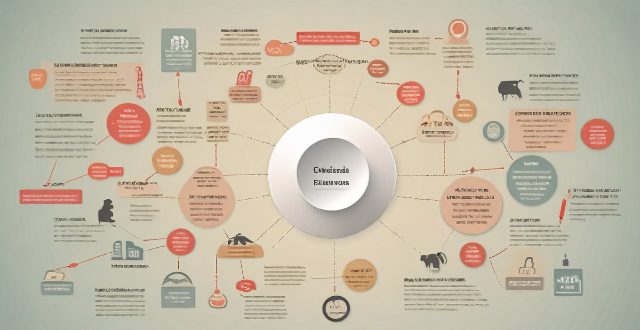
What role do auditors play in ensuring the accuracy of TCFD disclosures ?
Auditors play a crucial role in ensuring the accuracy of Task Force on Climate-related Financial Disclosures (TCFD) disclosures. Their key responsibilities include verifying information, assessing processes, and reporting findings to management and interested parties. By conducting audit procedures such as reviewing internal controls and testing their effectiveness, auditors can help ensure that companies provide reliable and transparent information about their climate-related risks and opportunities. This is essential for investors, regulators, and other stakeholders to make informed decisions.

How do TCFD disclosures improve transparency and accountability in business practices ?
The Task Force on Climate-related Financial Disclosures (TCFD) was established by the Financial Stability Board (FSB) to develop a framework for companies to disclose information about their impact on, and from, climate-related risks. These disclosures play a crucial role in enhancing transparency and accountability in business practices. By adhering to TCFD recommendations, businesses are compelled to communicate openly about their strategies and plans related to climate change. This includes identifying and explaining the potential impact of climate change on their operations and disclosing any financial risks or opportunities that may arise due to climate change. Investors increasingly demand clarity on how companies are addressing climate change. TCFD disclosures provide this clarity, fostering trust among investors and other stakeholders. The TCFD framework sets clear benchmarks for disclosure, making it easier for stakeholders to assess a company’s performance against industry standards. This promotes comparative analysis and performance evaluation. As the TCFD gains momentum, companies are incentivized to comply not just for regulatory reasons, but also to maintain their reputation and competitive edge in the market. Knowing they must report on climate-related matters can push companies to innovate, seeking new ways to reduce environmental impacts and adapt to climate risks. With TCFD disclosures, companies are prompted to consider long-term implications of their actions, leading to more sustainable business models. The disclosures align businesses with the United Nations Sustainable Development Goals (SDGs), particularly those related to climate action and life on land. TCFD provides a global standard for reporting, ensuring that companies operating across multiple jurisdictions can be assessed consistently. Through TCFD disclosures, companies can share successful strategies and practices related to climate risk management, fostering a collaborative approach to addressing climate change. Disclosures can reveal areas where companies might need partners—whether in technology, research, or other sectors—to achieve their climate goals.

What role does technology play in improving environmental monitoring ?
Technology plays a pivotal role in enhancing environmental monitoring by enabling advanced data collection, analysis, visualization, reporting, and conservation efforts. Satellite imagery, drone surveillance, sensor networks, big data analytics, GIS, real-time reporting systems, and early warning technologies are among the key tools used. These advancements not only improve our understanding of environmental changes but also aid in managing resources and raising public awareness about ecological issues.
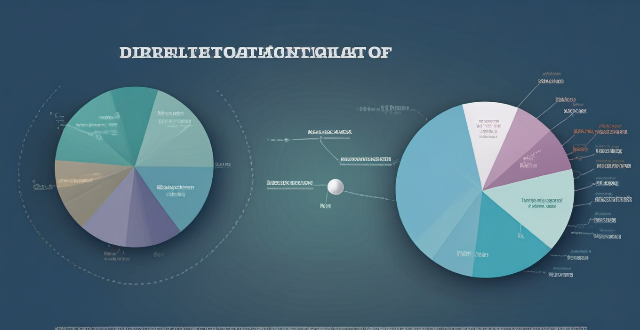
How can companies implement TCFD disclosures effectively ?
Effective implementation of TCFD disclosures in companies involves establishing a governance framework, assessing climate-related risks and opportunities, developing scenario analysis, reporting and disclosing information, and ongoing management and updates. This process helps companies meet the requirements of the TCFD and prepare for a low-carbon future.
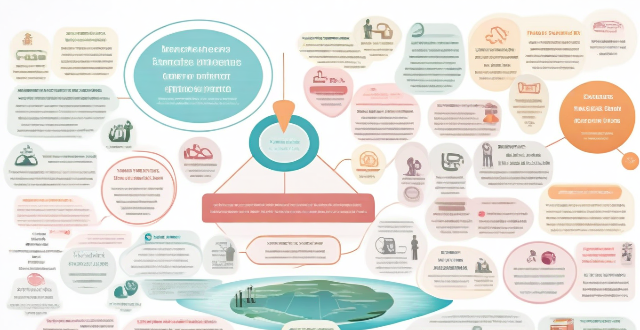
What are the best practices for businesses to report on their environmental impact as part of their CSR initiatives ?
Reporting on environmental impact is crucial for businesses as part of their CSR initiatives. Best practices include setting clear objectives and goals, collecting relevant data, analyzing environmental footprint, developing an action plan, communicating findings, encouraging stakeholder engagement, and continuously improving the reporting process. By following these steps, businesses can demonstrate their commitment to sustainability and transparency while providing valuable information to stakeholders about their environmental performance.

How can businesses measure and report their environmental performance throughout their supply chains ?
Measuring and reporting environmental performance in supply chains involves setting clear objectives, conducting a baseline assessment, developing an action plan, implementing and monitoring progress, and reporting performance transparently. Adopting standardized metrics, engaging stakeholders, and continuously improving are best practices to effectively manage environmental impact throughout the supply chain.

What role does media coverage play in shaping public opinion on climate skepticism ?
The text discusses the role of media coverage in shaping public opinion on climate change and climate skepticism. It highlights the influence of biased reporting, sensationalism, balanced coverage, source credibility, and audience perception on how individuals form their beliefs and attitudes towards these issues. The text emphasizes the importance of accurate, balanced, and transparent reporting by media outlets to ensure that the public is well-informed and able to make informed decisions based on evidence.

What are the ethical considerations in tax planning ?
Tax planning is crucial for financial management but must be done ethically to maintain fairness and integrity. Key considerations include avoiding aggressive tax avoidance, ensuring transparency and honesty in reporting, paying a fair share of taxes, avoiding double standards, considering long-term sustainability, and recognizing the responsibility towards society by supporting public services through taxes.

How do financial regulations affect consumers ?
Financial regulations protect consumers from fraud, promoteFinancial regulations protect consumers from fraud, promote credit, outline consumer rights, promote competition, ensure access to credit, outline consumer rights, and contribute to financial stability.

What are the main objectives of climate change negotiations ?
Climate change negotiations aim to limit global warming, pursue a 1.5°C target, adapt to impacts, support developing countries, and ensure transparency and accountability in actions.

What are the legal obligations for companies regarding their carbon footprint ?
Companies face various legal obligations concerning their carbon footprint aimed at reducing greenhouse gas emissions and mitigating climate change. These include mandatory and voluntary emissions reporting, regulatory compliance through emissions caps and permitting, corporate governance measures like board oversight and stakeholder engagement, financial responsibilities such as carbon taxes and trading schemes, commitments under international agreements, and potential civil liabilities for negligence or human rights violations related to pollution. Companies must take proactive steps to reduce emissions, engage stakeholders, and contribute positively to global climate action, with specific requirements depending on the jurisdiction, industry, and individual company's commitments.

How do financial regulations prevent financial crises ?
Financial regulations help prevent crises by managing risks, promoting transparency, protecting consumers, maintaining market integrity, overseeing systemic risks, reducing moral hazard, and coordinating internationally.

How can companies implement TCFD guidelines in their financial statements ?
The Task Force on Climate-related Financial Disclosures (TCFD) was established to develop global climate-related financial disclosures for companies. Implementing TCFD guidelines in financial statements involves understanding the framework, assessing climate-related risks and opportunities, integrating this information into financial reporting, and engaging stakeholders. Companies should disclose governance, identify risks and opportunities, provide strategies and metrics, and present financial impacts of climate change. They should also assess physical and transition risks, integrate climate-related metrics into financial statements, revise risk disclosures, and provide scenario analysis. Engaging stakeholders and providing clarity on assumptions and methodologies used in scenario analysis is crucial. By following these steps, companies can provide investors and stakeholders with a clear picture of their exposure to climate-related risks and opportunities.

What role do international organizations play in promoting green finance globally ?
International organizations play a vital role in promoting green finance by setting standards, providing guidance, building capacity, conducting research, facilitating collaborations, and monitoring progress. Examples of such organizations include UNEP, IEA, World Bank Group, GGGI, PRI, CBI, and GCF.

What are the responsibilities of governments in addressing climate change and protecting human rights ?
Governments worldwide have a crucial role in addressing climate change and protecting human rights. Their responsibilities include legislation, public awareness, research, international cooperation, adaptation measures, protection of human rights, alignment with Sustainable Development Goals, and monitoring progress. By taking proactive steps in these areas, governments can create a sustainable future for all citizens while respecting their fundamental rights.

How do international standards and certifications affect industrial energy efficiency practices ?
International standards and certifications significantly influence industrial energy efficiency practices by setting uniform benchmarks, driving innovation, enhancing reputation, promoting transparency, supporting regulatory compliance, and leveraging resource efficiency. These standards provide a framework for continuous improvement, drive technological advancements, expand market opportunities, ensure accountability, align with policies, reduce waste, and offer cost benefits. As sustainability becomes a global priority, adherence to these standards will be crucial for industrial competitiveness and success.

Can you explain the concept of 'data minimization' in data protection laws ?
Data minimization is a crucial principle in data protection laws that requires organizations to collect and process only the minimum amount of personal data necessary for specified, explicit, and legitimate purposes. This concept aims to protect individuals' privacy by limiting the potential harm that can result from the misuse or breach of their personal information. Key aspects of data minimization include collection limitation, purpose specification, data retention, data security, and accountability and transparency. Implementing robust security measures is crucial to ensure the confidentiality, integrity, and availability of personal data. Adhering to data minimization principles helps organizations comply with various data protection laws, fosters trust between individuals and organizations, reduces the risk of privacy breaches and violations, mitigates potential damage caused by cyberattacks or data breaches, and leads to cost savings for organizations due to reduced storage requirements and associated management costs.

What policies and regulations are currently in place to encourage more sustainable supply chain practices ?
Policies and Regulations Encouraging Sustainable Supply Chain Practices discusses various government initiatives, industry standards, and international agreements that promote sustainable supply chain practices. Government policies such as green procurement, carbon pricing, and eco-labels incentivize businesses to adopt environmentally friendly operations. Industry standards like CSR and LCA help companies understand and reduce their ecological footprint. International treaties like the Paris Agreement and Basel Convention provide a global framework for sustainable practices. Together, these measures form a comprehensive system to support sustainable supply chains worldwide.

How does climate change legislation influence corporate sustainability practices ?
Climate change legislation significantly influences corporate sustainability practices by setting standards for environmental responsibility. It compels companies to report on their environmental impact, use market-based mechanisms like cap-and-trade systems, and consider tax incentives or penalties in their operations. This legislation also creates investor pressure through ESG criteria and shareholder resolutions, leading companies to enhance their sustainability practices to meet investor expectations. Additionally, it opens market opportunities for green products and services and encourages renewable energy adoption. Companies that comply with climate legislation can improve their brand image and stakeholder engagement. Furthermore, such legislation aids in risk management by requiring companies to assess physical and transition risks associated with climate change. Overall, climate change legislation is a driving force behind corporations adopting more sustainable practices.
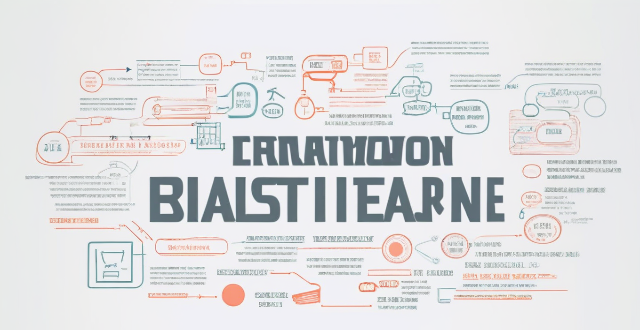
What is the relationship between ESG and corporate governance ?
The article explores the relationship between Environmental, SocialThe article explores the relationship between Environmental, Social (ESG) factors and It states that ESG is often considered a subset of corporate governance and focuses on specific aspects of how a company operates. Companies that prioritize ESG factors tend to have stronger corporate governance structures in place. The role of boards in overseeing a company's ESG initiatives is also discussed. Regulations and stakeholder pressure are driving the need for effective corporate governance. Best practices for integrating ESG into corporate governance include defining clear objectives, regular reviews, stakeholder engagement, and maintaining transparency and accountability.

What is the regulatory environment for private equity ?
Private equity firms are subject to various regulatory requirements, including disclosure, anti-money laundering and know your customer regulations, securities laws, and tax laws. The specific regulations vary across different regions and countries, with the United States being regulated by the Securities and Exchange Commission (SEC) and the Financial Industry Regulatory Authority (FINRA), Europe by the Alternative Investment Fund Managers Directive (AIFMD), and Asia having widely varying regulations across different countries. Despite these regional variations, key principles such as transparency, disclosure, and compliance with securities and tax laws are common across all jurisdictions.

What are some best practices for integrating climate risk into investment decision-making processes ?
As climate change continues to affect financial markets, integrAs climate change continues to affect financial markets, integr decision-making processes is becoming integrating climate risk into investment decision-making processes is becoming increasingly important. Best practices for doing so include assessing climate risk in the investment process, incorporating climate risk into investment analysis, monitoring and reporting on climate risk exposure, and collaborating with other stakeholders. These practices help investors manage climate risk effectively and make informed investment decisions that align with sustainability goals.